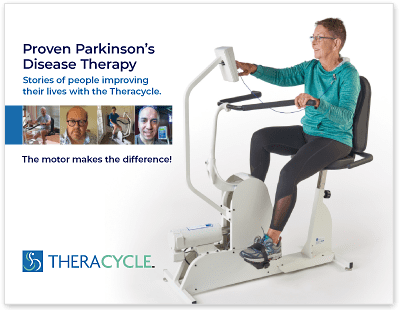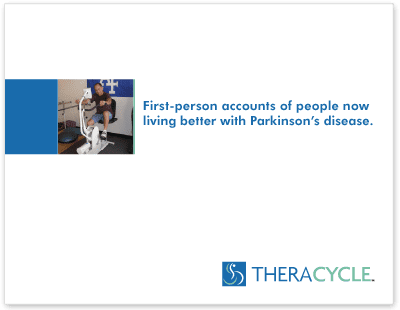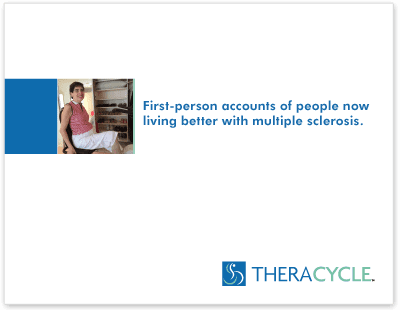- ›
- Resources
- ›
- Dopamine Foods for Parkinson’s Disease: Diet and Supplements
Dopamine Foods for Parkinson’s Disease: Diet and Supplements
A growing body of evidence suggests that diet and nutrition, such as foods that increase dopamine, play an important role in Parkinson’s disease. Studies suggest that the inclusion of certain nutrients can provide neuroprotection; a well-balanced diet rich in a variety of foods, including fresh vegetables, fruits, and herbs, nuts and seeds, omega-3 fatty acids, and tea may slow the progression of Parkinson’s disease. Conversely, some foods, including canned fruits and vegetables, soda, fried foods, and animal products, may cause neurodegeneration.
Research has shown that the traditional Mediterranean diet reduces the risk of heart disease and cancer, but there is also emerging information on the impact of this diet on brain health and PD, and may slow cognitive decline in older adults. The Mediterranean Diet is rich in fruits, vegetables, pasta, rice, whole grains, nuts, fish, and olive oil and is considered a delicious and healthy way to eat to prevent chronic diseases.
Another diet recommended to improve brain health is the MIND diet. The MIND diet stands for Mediterranean-DASH Intervention for Neurodegenerative Delay and combines the Mediterranean and the DASH (Dietary Approaches to Stop Hypertension) diets and is designed to improve brain function and reduce decline in brain health that occurs in people as they age. The MIND diet encourages eating 10 specific foods: green leafy vegetables, vegetables, berries, nuts, olive oil, whole grains, fish, beans, poultry, and wine, while recommends limiting 5 particular foods: butter & margarine, cheese, red meat, fried food, and pastries & sweets.
We know that a poor diet will have a negative impact on an individual’s health. The brain needs top quality fuel for optimal performance. Good nutrition for the body is good nutrition for the brain. Feed your brain a healthy and balanced diet and improve your well-being! But of course, consult with your physician to create a diet that suits your own personal and medical needs.
Gut Microbiome, Diet & Parkinson’s Disease
The field of gut microbiome research has attracted much attention and interest in the last decade. There’s a growing body of evidence that links gut microbiome with health and disease, and supports the idea that Parkinson’s disease may actually originate in the gut before spreading to the brain.
The human gut microbiome consists of bacteria, viruses, fungi, and protozoa that live on and inside our bodies and digestive tracts. These microbes have the potential to impact most of our physiological processes by controlling our food digestion, immune system, and central nervous system. Researchers have come to understand how microbes keep humans healthy and are also learning how microbiome imbalances may cause disease, affect brain health and contribute to neurodegenerative disorders.
The link between gut microbiome and Parkinson’s disease may account for why many people with Parkinson’s disease complain of constipation and other digestive issues for years before motor symptoms present. Research has shown that changes in the composition of gut bacteria can contribute to and may even result in the deterioration of motor skills. Gut bacteria may be releasing chemicals that over-stimulate parts of the brain leading to Parkinson’s symptoms. There’s also evidence that people with Parkinson’s disease have different gut microbiome to other healthy adults.
There are several factors that contribute to gut health, including environment, exercise, sleep and stress. The leading factor, however, that determines which microbiomes live in the gut is diet. Diet plays a large role in creating balance in the gut microbiome and supporting microbiome’s good bacteria which can lead to healthy outcomes.
The foods we eat affect the composition of our gut microbiome; a balanced gut microbiome is important to digestive functioning. When our gut microbiome is out of balance, our overall health can be adversely affected, leading to several health issues, including weight gain, diabetes, and high cholesterol. When our gut microbiome is balanced, we feel healthy and have more energy.
The foundation of a healthy microbiome diet includes anti-inflammatory foods and “super foods” which contain high levels of antioxidants and other important vitamins. These foods help support the growth of healthy microbes in the gut and include fresh vegetables; whole pieces of fruit; herbs, spices and teas (basil, ginger, oregano, turmeric, green tea); probiotic and fermented foods (yogurt, kefir, kimchi, kombucha, cultured veggies); fish; healthy fats; whole grains and legumes/beans; nuts; and dark chocolate.
If your diet doesn’t include these foods, don’t despair! It’s possible to change your gut microbiome fairly quickly. The average lifespan of a gut bacterium is 20 minutes. You have the opportunity to change your gut microbiome with every meal you eat. And the more you stick to an anti-inflammatory diet, the better you should feel!
Consult with your physician to create a diet that is suitable for your own needs. There is no diet specific to Parkinson’s disease, but there are general guidelines you can follow to improve overall health and a sense of well-being. Depending on what medications you take, you may need to adjust your diet accordingly. Certain medications may need to be taken at certain times of day or with or without certain foods or beverages to minimize side effects.
How to Increase Dopamine
Parkinson’s disease is primarily caused by low and falling dopamine levels. Dopamine is a neurotransmitter that controls communication in the brain. A chemical messenger, dopamine regulates signals in the brain and passes information from one neuron to another, via the synapse, the tiny spaces between them. The transmission of dopamine is a complex process and the effects of the release of dopamine can vary, depending on variations in neuron pathways, neuron types and the roles both the releasing and receiving neurons play.
Dopamine plays important roles in executive function, attention and memory, motor control and movement, and motivation and reward. The loss of dopamine-producing brain cells, located in a deep area of the midbrain called the substantia nigra, can produce symptoms of Parkinson’s disease—tremor, rigidity, imbalance and walking difficulties.
Carbidopa-levodopa, a class of medication prescribed for Parkinson’s disease, increases dopamine levels in the brain to help reduce tremor, stiffness and slow movement.
Beyond medication, however, there are natural ways as part of a healthy lifestyle, that can potentially regulate the production of dopamine. Consuming the right foods and supplements, meditating, and exercising have been known to naturally increase dopamine levels.
Foods which contain high levels of antioxidants that combat free radicals are included on lists of important foods to keep brains young and in top shape. Berries, green leafy vegetables, eggs, fish and oil have neuroprotective properties which can reduce cognitive decline and improve memory function. Yogurt, kefir and raw sauerkraut, natural probiotics, can also increase natural dopamine production.
There are amino acid dopamine supplements on the market, including L-Tyrosine, a precursor to dopamine, that may increase dopamine in the brain. L-tyrosine is also found in protein-rich foods like animal products and legumes. L-theanine enhances dopamine production and can be found in green tea but can be taken as a supplement. Of course, consult with your physician before taking any supplements as some may interact with Parkinson’s disease medications.
Scientific studies have shown that meditation—being in a completely focused or mindful state—can trigger dopamine release. Similarly, praying or doing simple self-reflection where one’s mind is still and free from other thoughts, can have the same effect.
Exercise is another natural way to change dopamine levels in the brain. Physical exercise has well-known health benefits for the body, but there’s nothing like physical exercise to reprogram the brain. Exercise can slow cognitive decline, reduce anxiety and promote positive well-being by increasing production of new brain cells and elevating dopamine levels.
So, move your body, still your mind and eat a healthy diet—things you can control—to increase your dopamine levels. Dopamine is considered to be a natural anti-depressant and any time you can find a way to naturally increase dopamine levels, the better!







